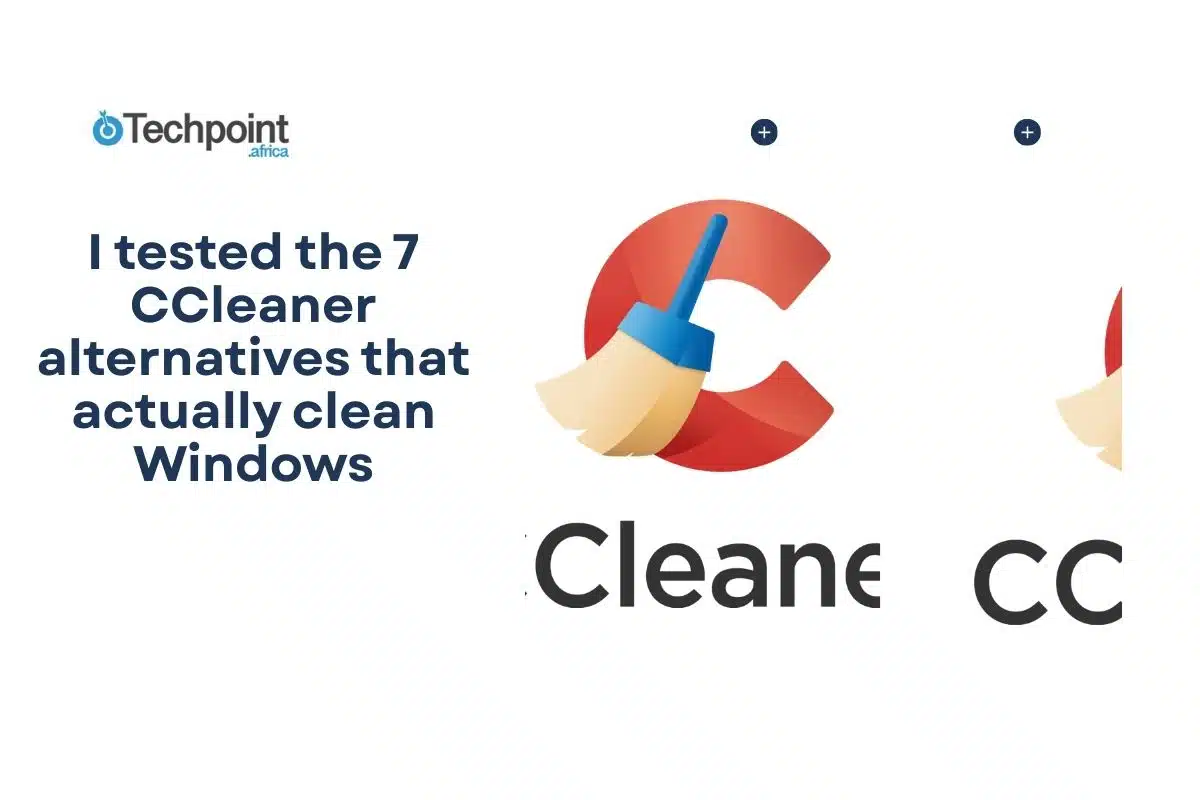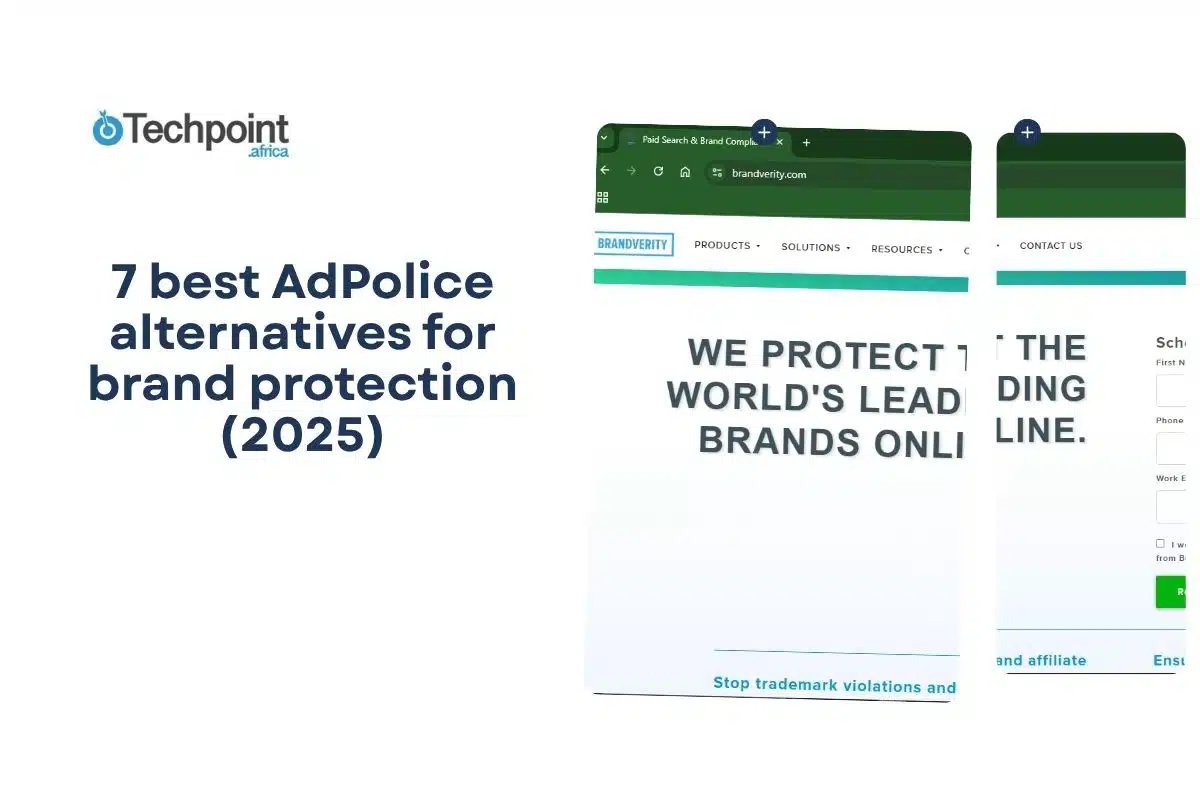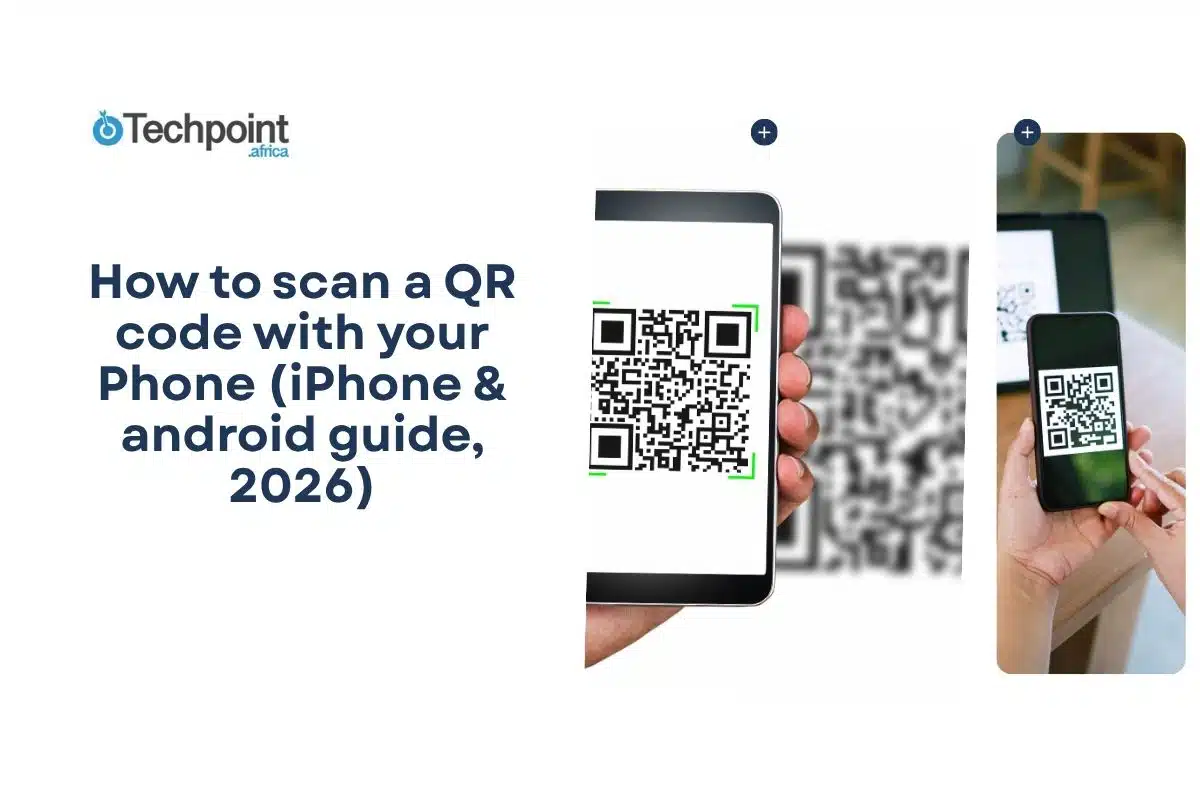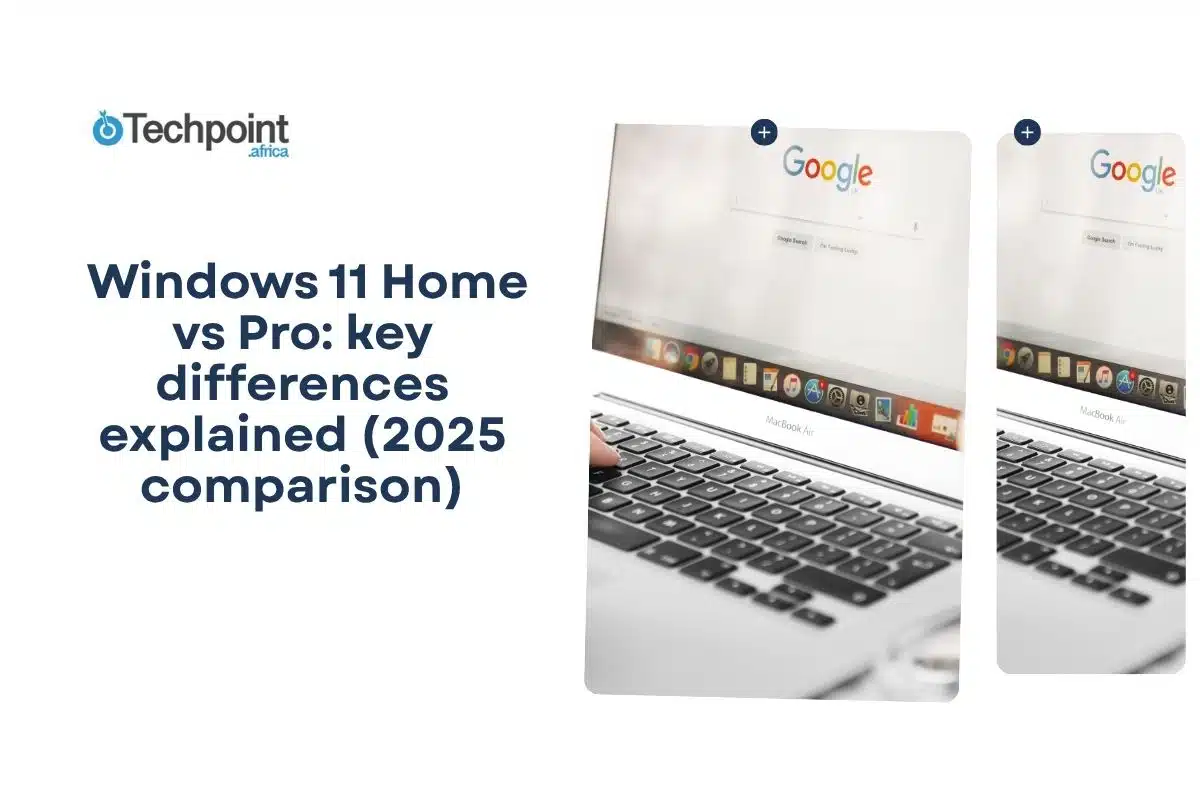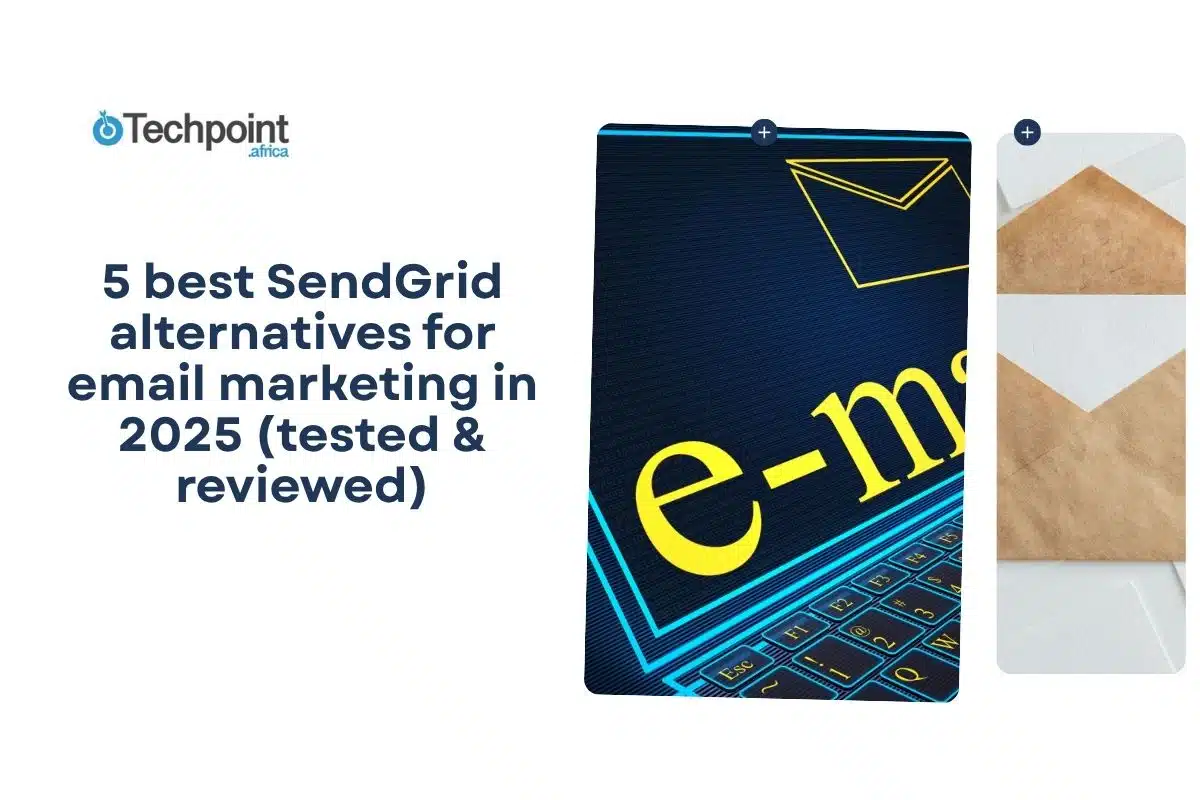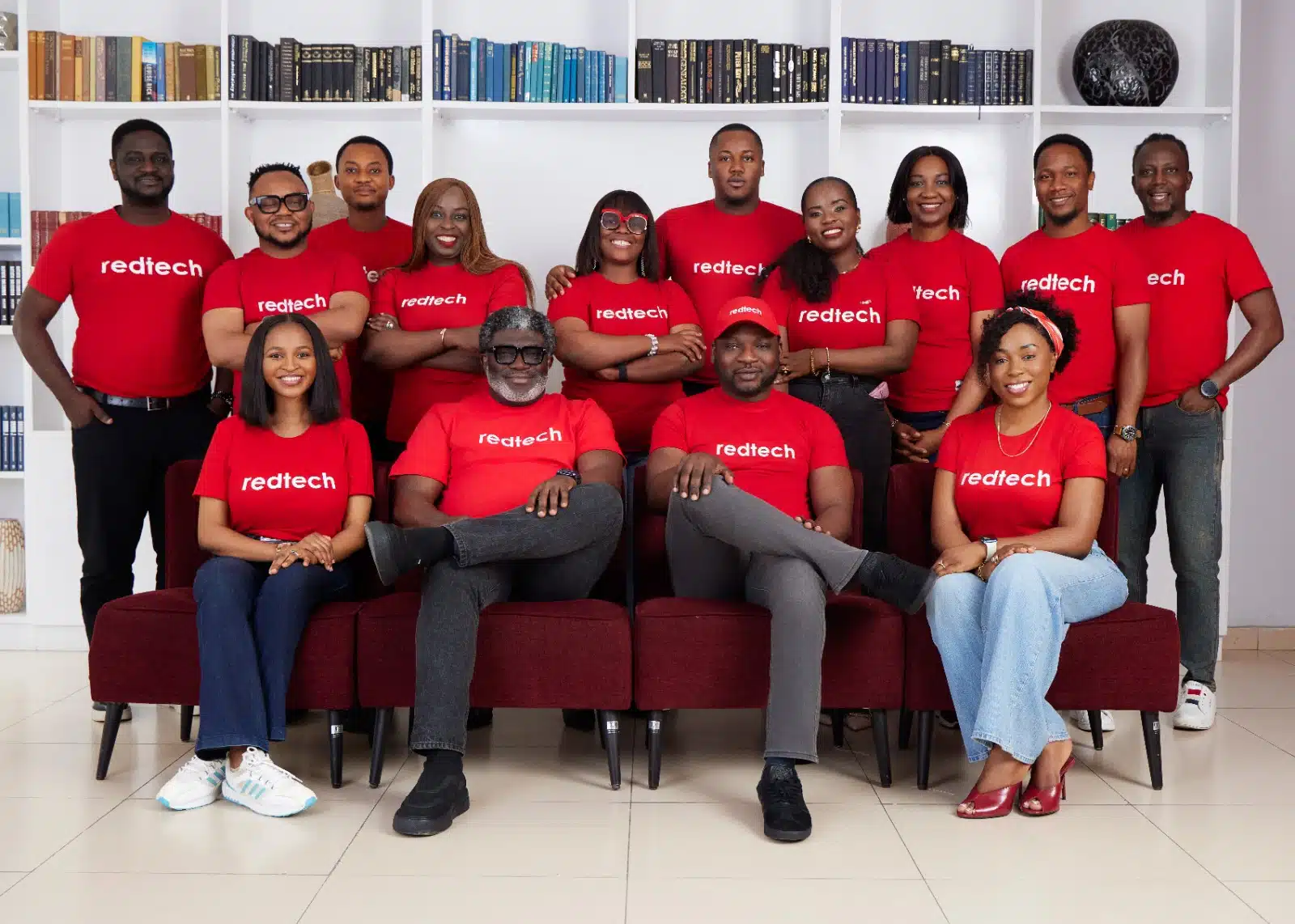CCleaner emerged from Piriform in 2004 as a utility designed to clear temporary files and enhance system performance. However, its reputation has been called into question. In fact, Microsoft’s official security encyclopedia lists CCleaner as a potentially unwanted application, citing risks such as unnecessary registry cleaning and bundled components.
That warning alone was enough reason for me to seek alternatives. I tested several directly on Windows systems, reviewing their effectiveness and transparency, and afterwards narrowed the list down to 7 reliable tools that clean Windows in seven different ways that CCleaner doesn’t.
Let’s see them.
A perk of the 7 best CCleaner alternatives
| Tool | Key Features | Pros | Cons | Pricing |
| Microsoft PC Manager | Health checkup, deep cleanup, pop-up control | Free, official, easy to use | Limited features | Free |
| BleachBit | Cache cleaning, shredding, and open-source | No tracking, cross-platform | No automation, basic UI | Free |
| Revo Uninstaller | Hunter Mode, leftover clean, batch uninstall | Deep uninstall, backups | Pro required for full access | $24.95–$29.99 |
| Avast Cleanup Premium | Deep clean, bloat cleanup | Aggressive cleaning, modern UI | Paid, upsells | $30–$60/year |
| Glary Utilities | Tool suite, one-click maintenance | Comprehensive, free tier | The pro has cost | ~$20–$40/year |
| Ashampoo WinOptimizer | 35+ modules, optimization profiles | Feature-rich, context-aware | Paid, complex | $14/year or $55 one-time |
| WizTree | Fast disk analyzer, accurate treemap | Visual and fast | Manual cleanup only | Free / supporter code |
Let’s go into the details of each.
- Microsoft PC Manager
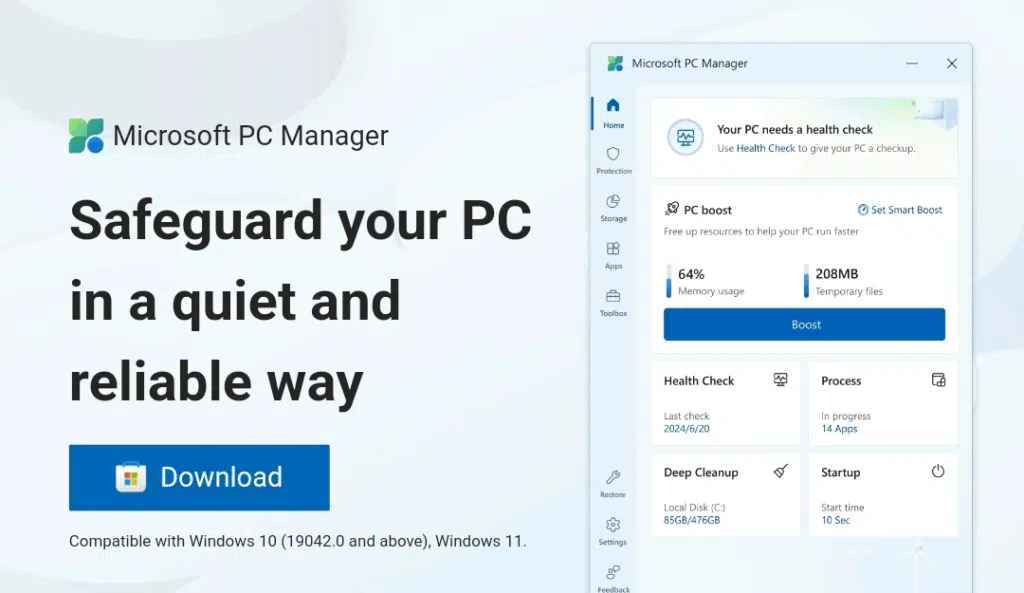
Launched around 2022 and developed by Microsoft’s China-based team, Microsoft PC Manager was introduced as a lightweight utility separate from Windows. It aims to be a simple, reliable cleaner rooted in Microsoft’s ecosystem, explicitly for Windows 10 (19042.0 and above) and Windows 11 users.
Features I discovered
- One-click Health Checkup that scans for junk files and possible system risks
- Deep Cleanup for browser/application caches, temp files, logs, and unnecessary data
- Basic storage management for surfacing large files and suggesting cleanup locations
- Pop-up management to reduce ads and interruptions during usage
Improvements compared to CCleaner
What distinguishes Microsoft PC Manager is its official status and clean, simple design. It omits advanced settings and telemetry, which are often unique to CCleaner, providing a straightforward path to decluttering without navigating complex menus.
Pros & Cons
- Pros: It is supported directly by Microsoft, completely free, and has an intuitive interface.
- Cons: Lacks scheduling, registry tweaks, uninstaller function, or automation.
Pricing
- Always free for compatible Windows versions.
My giveaway tip:
- If light and legitimate system cleanup is your order of business, Microsoft PC Manager offers these essentials without complications.
- BleachBit
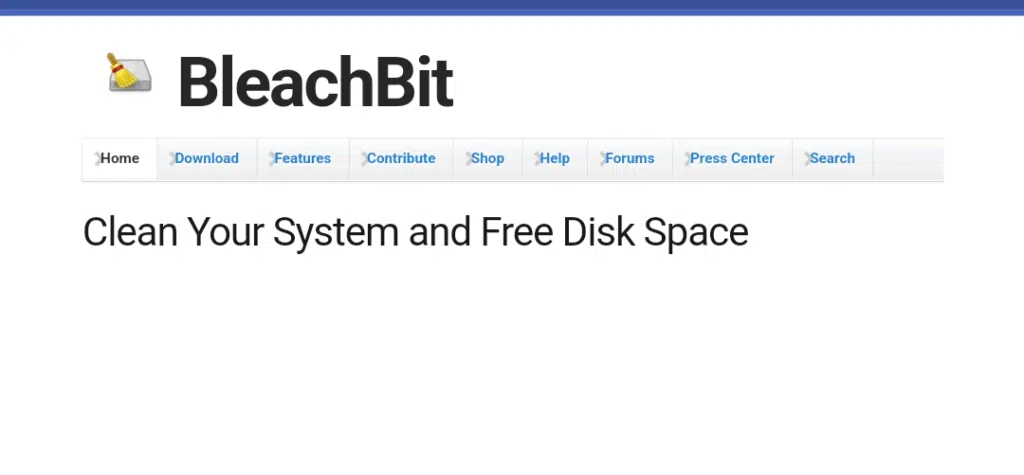
BleachBit is an open-source system cleaner created by Andrew Ziem. Unlike most commercial cleaning utilities, it has always emphasized transparency and user control over aggressive marketing or bundled add-ons. The tool quickly gained popularity among Linux users in December 2008 due to its lightweight design. Then it earned a Windows following by mid-2009 as a straightforward, privacy-oriented alternative to proprietary cleaners.
With continuous community support, it remains actively updated and trusted by those who prefer open-source projects over closed systems.
Features I discovered
- Comprehensive junk removal: This tool deletes browser cache, cookies, history, logs, and temporary files across various applications, including Adobe, Google Chrome, Edge, Firefox, VLC, and others.
- Secure file shredding: Permanently deletes sensitive files to prevent recovery, an option CCleaner only provides in paid versions.
- No telemetry or spyware: As an open-source project, its code is freely available, so users can verify that there is no hidden data collection or ads.
- Cross-platform compatibility: It works on Windows and Linux and supports CleanerML, allowing users to write custom cleaning rules for additional programs. If you use Windows, you could install or run it in portable mode, like from a USB drive.
- It automatically imports and updates winapp2.ini cleaner files, giving Windows users access to thousands of additional cleaners
- Lightweight installation: Takes up minimal space, requires no background processes, and consumes little system memory.
- Command-line support: This feature offers automation options through scripting for advanced users, which are rarely included in commercial cleaners.
- It is translated into 68 languages.
- There is an overwrite free disk space to hide previously deleted files.
Improvements compared to CCleaner
BleachBit’s transparency stands out. CCleaner has faced criticism for bundling software and collecting limited telemetry, while BleachBit operates with complete visibility. Additionally, features such as secure file shredding are free here but gated behind CCleaner’s premium version.
Pros & Cons
- Pros: 100% free, open source, privacy-focused, supports secure deletion, no ads, no background services.
- The cons are that the interface is basic, no registry cleaner or performance optimization modules, and automation requires command-line knowledge.
Pricing
BleachBit is entirely free for both personal and commercial use. There are no premium editions, upsells, or hidden costs. Updates are maintained by the community and released regularly without charge.
My giveaway tip:
For anyone seeking a reliable, no-nonsense system cleaner built on openness and privacy, BleachBit is a strong alternative to CCleaner.
- Revo Uninstaller
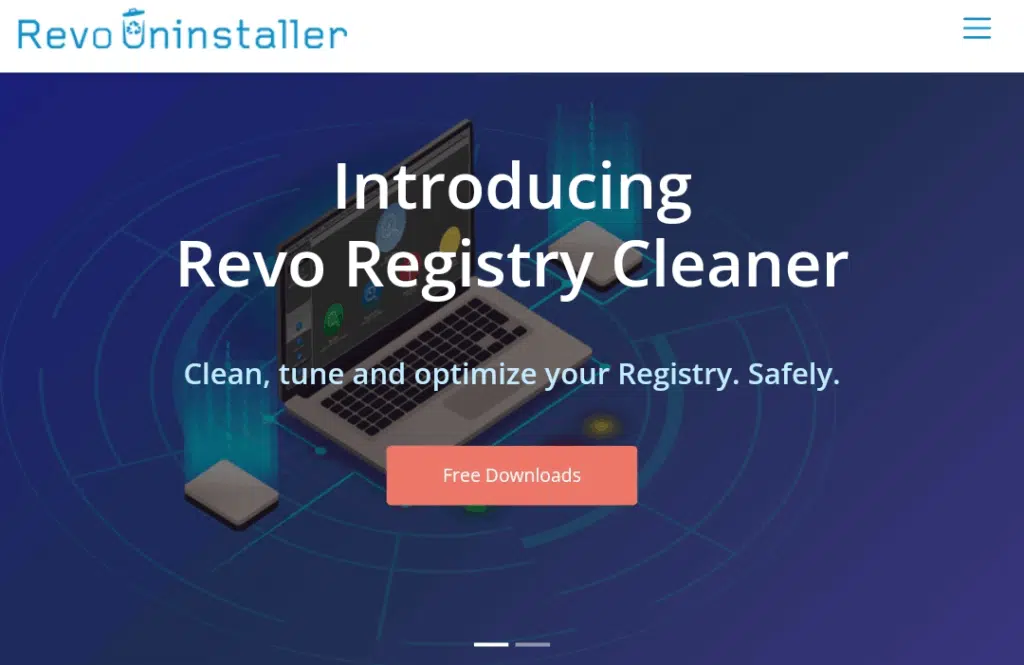
Opened to the public by VS Revo Group on April 23rd, 2012, Revo Uninstaller began as a straightforward uninstallation utility but has since evolved into a comprehensive removal suite. The free version offers basic functionality, while the Pro edition expands into deep scanning, monitoring, and advanced backup management.
It has established itself as the core choice among users who need assurance that programs and their hidden traces are entirely removed, not just superficially deleted. Unlike many general-purpose cleaners, Revo specializes in “full uninstall fidelity,” ensuring nothing unnecessary lingers behind.
Features I discovered
- Hunter Mode lets you drag a target over software windows, icons, or system tray elements to quickly uninstall or stop them.
- Deep leftover scan: After standard removal, it thoroughly checks for residual files, folders, and registry entries.
- Batch and quick uninstall: Offers simultaneous removal of multiple applications while creating restore points.
- Logs database: Maintains uninstall logs and allows automation of cleanup tasks.
- System restore and backup: Automatically creates backups before deletion, reducing the risk of system instability.
- Windows apps support: This tool removes desktop software and Microsoft Store apps, restoring default settings when required.
Improvements compared to CCleaner
While CCleaner’s built-in uninstaller is basic and often leaves remnants, Revo’s combination of Hunter Mode and deep leftover scans provides a far more thorough cleanup. It also includes restore options that are missing in CCleaner.
Pros & Cons
- Pros: It removes stubborn software, offers restore points and logs, and supports Windows apps.
- The cons: The free version is limited, and the best features are locked behind a pro license.
Pricing
Revo Uninstaller Pro costs $24.95 per year for one PC with updates included. The Portable Pro version costs $29.95 and allows flexible use of the same features on a USB stick.
My giveaway tip:
For anyone frustrated by lingering program traces, Revo Uninstaller Pro offers a meticulous approach that surpasses CCleaner’s capabilities.
- Avast Cleanup
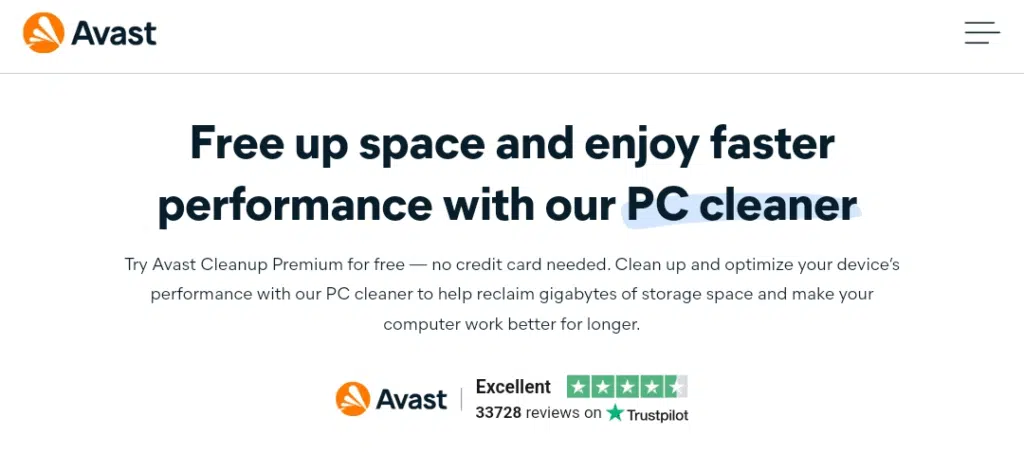
Avast Cleanup Premium was released on 20 December 2017 as a commercial optimization tool from the cybersecurity company Avast Software, best known for its antivirus solutions. Positioned as a performance enhancer rather than just a file cleaner, it targets junk removal, startup optimization, and system maintenance in one package.
Unlike freeware tools, it is entirely subscription-based, emphasizing continuous development and integration with Avast’s broader ecosystem. Its “next-generation cleaning” branding is meant to appeal to users who expect a sleek interface with consistent support.
Features I discovered
- Bloatware and shortcut removal: This function cleans unnecessary pre-installed applications, broken shortcuts, and residual program files.
- Deep Clean scans: Runs thorough checks to uncover hidden junk and temporary data that general cleaners overlook.
- Performance optimization: Manages startup programs and background processes to improve responsiveness and boot times.
- Automatic maintenance: Offers scheduled scans and cleanups for a hands-off experience.
- Trial access: Provides a full-featured trial without requiring a credit card, allowing users to test before committing.
Improvements compared to CCleaner
While CCleaner focuses on simplicity, Avast Cleanup Premium delivers a broader range of performance tools, including startup and process management. The modern design also makes navigation smoother compared to CCleaner’s utilitarian interface.
Pros & Cons
- Pros: Comprehensive cleanup, additional optimization features, attractive design, and free trial are available.
- Cons: This is a fully paid product with no permanent free version, and it includes upselling for other Avast services. It can feel heavy on older PCs.
Pricing
According to official listings and industry sources, Avast Cleanup Premium is typically priced at $59.99 per year for one device or $69.99 for ten devices. Discounts often reduce the one-device plan to around $30 per year.
My giveaway tips:
Avast Cleanup Premium is one of the most reliable, complete tools available today if you’re willing to pay for aggressive system cleaning and optimization.
- Glary Utilities
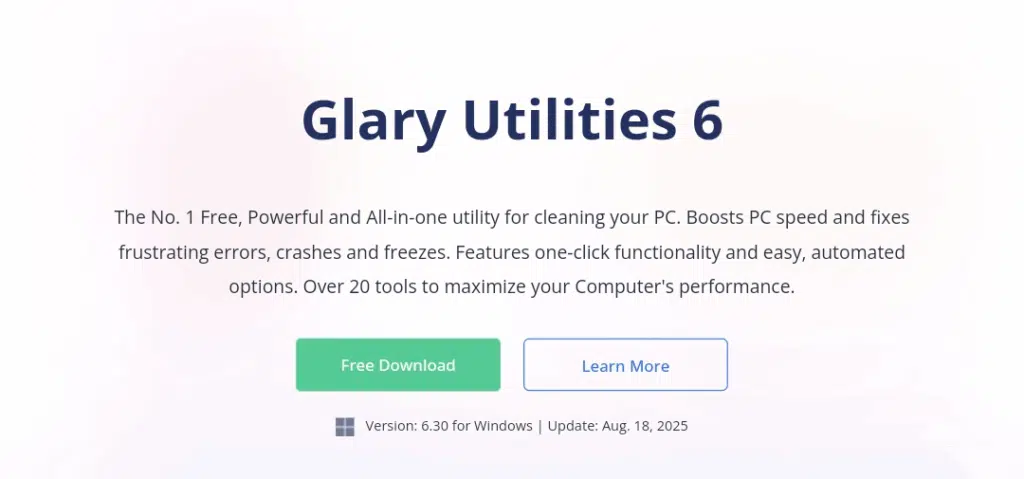
Glary Utilities, developed by Glarysoft, has been part of the PC maintenance discussion since the mid-2000s. It was introduced as an all-in-one system care suite when most users relied on multiple standalone tools. However, as time has passed, it has bundled numerous optimization features into one package while keeping a free edition available for personal use. Today, it is one of the most downloaded utilities in its category, with the Pro version targeting advanced users through automation and stronger cleanup functions.
Features I discovered
- Comprehensive toolset: This includes over 20 integrated utilities, including registry repair, disk cleanup, file recovery, and basic malware detection.
- One-Click Maintenance: This feature streamlines registry cleaning, startup management, temporary file removal, and shortcut fixing into a single scan.
- Automatic updates: The latest releases (v6.30 as of August 2025) add scheduled updating and auto-maintenance, ensuring background optimization.
- Privacy features: Offers file shredding, history cleaning, and encrypted file management to secure personal information.
- Startup manager: This tool lets you control which applications load during boot, helping to improve performance.
- System repair: This option includes checking for errors, restoring deleted files, and monitoring software integrity.
Improvements compared to CCleaner
While CCleaner emphasizes junk file removal and registry cleaning, Glary Utilities extends further into recovery, backup, and repair tools. It feels more like a complete maintenance environment than just a cleaner.
Pros & Cons
- Pros: Strong free version, wide range of utilities, convenient one-click mode.
- Cons: Some advanced features are locked behind the Pro edition, and the interface is serviceable but less modern than newer rivals.
Pricing
Glary Utilities is free for personal use. The Pro license, covering three PCs, costs $39.95 annually, though frequent discounts bring it down to $19.97 annually.
My giveaway tip:
For users who want more than just simple junk removal, Glary Utilities offers an extensive maintenance suite at an affordable price point.
- Ashampoo WinOptimizer
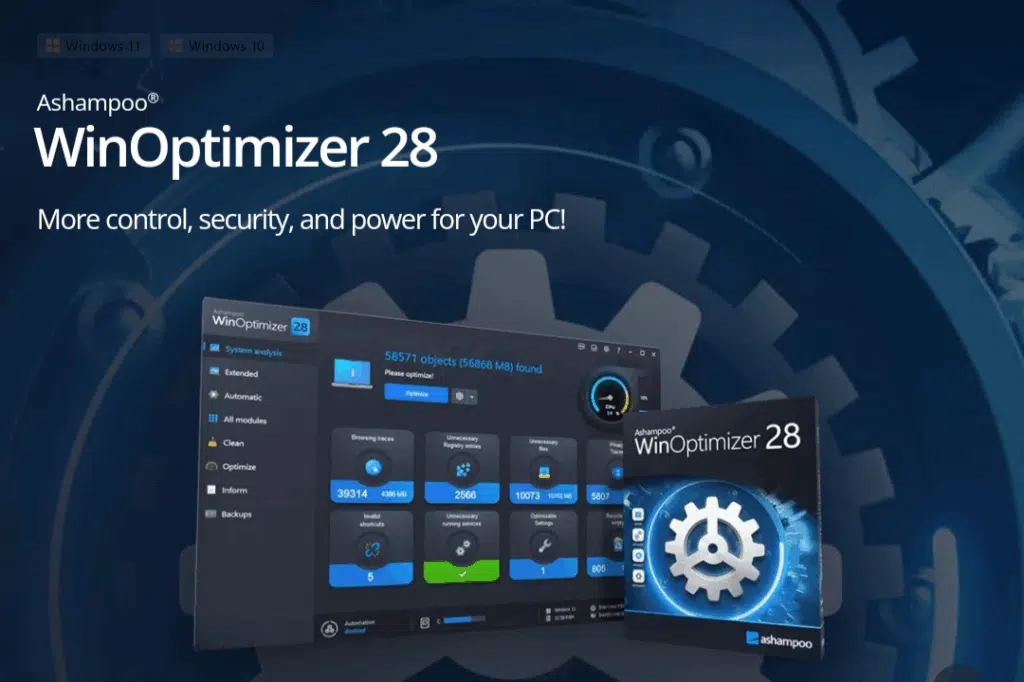
Ashampoo, a German software company founded in 1999, is well known for its practical desktop utilities. Among its flagship products is WinOptimizer, a program designed to clean, tune, and safeguard Windows systems. Unlike single-purpose cleaners, WinOptimizer organizes its functions into modular categories, making it easier for users to choose whether to focus on performance, privacy, or space recovery. Over multiple iterations, the software has developed a reputation for being feature-heavy but well-structured.
Features I discovered
- Extensive module library: Current versions (27 and 28) include more than 35 modules covering registry cleaning, file deletion, system tuning, and privacy controls.
- One-click optimization: Performs automated scans and fixes across categories like disk cleanup, registry issues, and broken shortcuts.
- Performance profiles: Offers presets optimized for gaming, work, or everyday browsing, tailoring resource allocation for specific contexts.
- Privacy manager: Configures Windows privacy settings, blocks telemetry, and protects sensitive data.
- Live Tuner: Prioritizes applications in real time to enhance responsiveness while multitasking.
- Auto-maintenance: Schedules regular checks for clutter and issues, reducing manual intervention.
Improvements compared to CCleaner
While CCleaner provides reliable cleanup, it doesn’t adapt to user scenarios. WinOptimizer allows optimization by profile (something CCleaner lacks), making it more responsive to system usage.
Pros & Cons
- Pros: Broad feature set, context-aware profiles, strong privacy options, frequent updates.
- The cons are that it is paid-only for full functionality, there is a learning curve for casual users, and the interface may appear crowded.
Pricing
Ashampoo WinOptimizer offers a perpetual license for around $55 one-time, with promotions often lowering prices. A subscription plan averages about $14 per year, making it affordable for ongoing updates.
My giveaway tip:
If you want cleanup tied to how you use your PC, WinOptimizer provides structured, adaptable optimization beyond what CCleaner delivers.
- WizTree
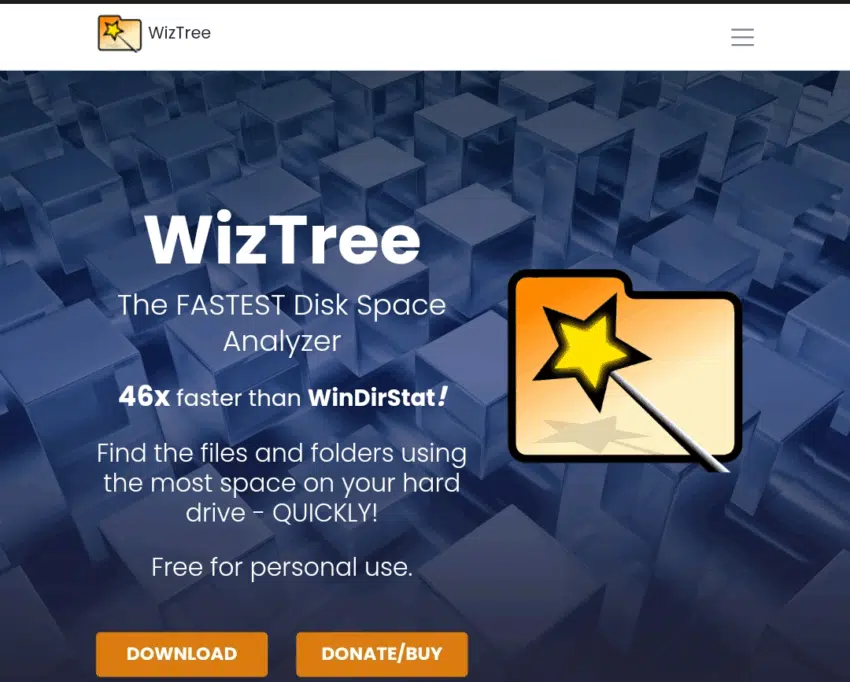
WizTree, developed by Antibody Software, was first released in 2008 as a disk space analyzer designed to outperform traditional scanning tools. Its key distinction lies in using the NTFS Master File Table (MFT) to analyze drives, allowing it to detect large files and directories quickly. Over time, it has become a favorite among IT professionals and power users who want precise control over storage management rather than automated cleaning.
Features I discovered
- Ultra-fast scans: By reading the MFT directly, WizTree scans drives much faster than conventional analyzers.
- Visual treemaps: Provide a clear, color-coded map of space usage, making it easy to spot oversized files or folders.
- Accurate reporting: Handles hard-linked files correctly, ensuring space usage matches what Windows reports.
- CSV export: Enables exporting scan results for further analysis or documentation.
- Portable version: It can be run from a USB drive without installation and is convenient for technicians.
- Drag-and-drop support: Lets you easily delete, move, or examine files directly from the interface.
Improvements compared to CCleaner
CCleaner includes basic storage cleaning but lacks visual analysis tools. WizTree fills this gap by showing exactly where disk space is consumed, giving users clarity before deciding what to delete.
Pros & Cons
- Pros: Extremely fast, accurate, portable, intuitive visuals, free for personal use.
- The cons are that it does not automatically clean files and requires users to manage them manually.
Pricing
WizTree is free for personal use. A license is required for commercial environments, available through a supporter model or paid code from the developer. Supporters also help fund ongoing development and updates.
My giveaway tip:
- When quickly identifying space hogs on your hard drive, WizTree delivers unmatched speed and clarity compared to traditional cleaners.
Rounding up,
Each cleaner here replaces what CCleaner offered, with more transparency and purpose behind it.
Microsoft PC Manager is my first go-to for daily maintenance, and it natively fits Windows. Revo Uninstaller sifts through hidden apps with its Hunter Mode, which is ideal for deep uninstalls when I need it. If privacy or openness matters most, BleachBit is unmatched. Glary Utilities and Ashampoo give comprehensive toolsets on demand, while Avast Cleanup delivers aggressive performance boosts that come with a price. Finally, whenever I’m out of disk space and searching for the culprit, WizTree’s clear visuals guide me straight to the problem.
These 7 are ultimately the best tools, depending on what you need. There are solid, reliable options that do what CCleaner once did, but they are only better.
So choose one, two, or get all for them for that moment when their different purposes matter.

